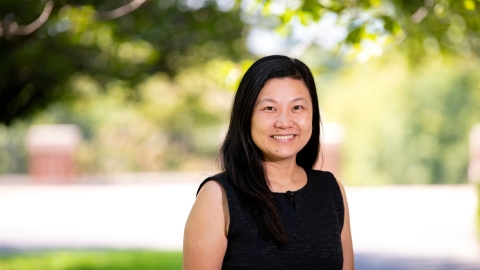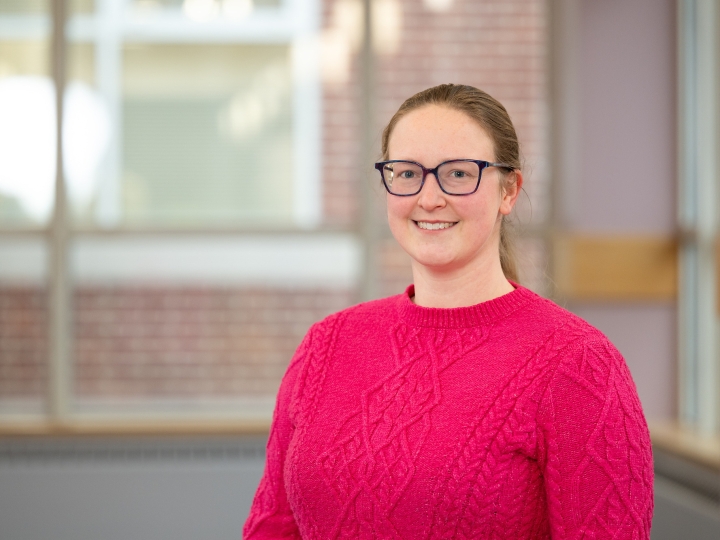
Bucknell Awarded NSF Grant to Study Faculty Gender, Race, Ethnicity Barriers
August 11, 2021
A key strategic goal in Bucknell University's Plan for 2025 calls for building and sustaining a diverse community among students, faculty and staff. A new National Science Foundation (NSF) ADVANCE grant will support that goal among faculty by funding a project to identify and address systemic inequities and advancement barriers related to gender, race and ethnicity among University faculty.
Bucknell is one of just six institutions this year to receive an award from NSF ADVANCE, which provides grants to enhance systemic factors that support equity and inclusion and mitigate factors that create inequities in the academic profession and workplaces. The $271,000 grant will fund a two-year self-assessment project that will include a faculty survey, focus groups, and scholarship and professional development support for 10 faculty members.
Jiajia Dong, professor of physics & astronomy and associate dean of faculty, natural sciences & mathematics, is the project's principal investigator. She is collaborating with Erin Jablonski, interim dean, College of Engineering; Professor Abby Flynt, mathematics; and Professor Sue Ellen Henry, education, on the project. They will develop and administer a faculty survey next year that will focus on three stages of the Bucknell faculty experience — recruitment, retention and pathway toward advancement.
"We are going to survey all of the faculty members and ask them to answer questions on their gender, ethnicity, years of experience and rank, and how long they've been at Bucknell," Dong says. "We're going to ask them about their experience of being recruited and hired, and what were the challenges and impressions they had. The second segment will focus on retention and the tenure process. And the last part will focus on the different pathways toward advancement and what challenges they've encountered, as well as what support they've received or wish they received."
During the project's second year, researchers will use faculty focus groups to probe common themes identified through the survey results.
"The focus group interviews are where we want to get specific information on what these challenges are and how they affected different faculty members differently," Dong says. "Toward the end [of the two years], we'll sit down as a team with different University administrators, look at these things and work together to find better ways to support faculty members."
The project will reinforce existing diversity, equity and inclusion (DEI) work already being done at Bucknell, including establishing an Anti-racism Fund, expanding the president's leadership team and joining more than 50 colleges in the formation of a new racial equity leadership alliance. The University also developed DEI councils in Bucknell's three colleges (Arts & Sciences, Engineering and the Freeman College of Management), as well as in seven administrative departments across the University.
"This is huge for a variety of reasons, one of which is that we want to start to recognize and collaborate with people who are taking seriously the scholarly element of diversity and equity," says Nikki Young, associate provost for equity & inclusive excellence. "Using a review of our very own retention, tenure and promotion process is a way to hold us accountable and have faculty engaged in this work.
"The process is the product here," she adds. "Part of what will happen is that more people will be engaging in the discussions related to faculty experiences and the process of being underrepresented minorities, which will build knowledge on campus. And people will already start to think about responding to what they're hearing through this process."
Young points out that this research will provide valuable scientific data that will enhance an existing University faculty mentoring program.
Dong says the project team is still working on the selection criteria and process for awarding scholarship and professional development support for faculty members. It plans to launch the self-study in October through a kickoff information session and will keep the campus community updated through a website.
"The success of this project relies on the active participation and thoughtful input from faculty members," Dong says, "and the team looks forward to bringing forward a plan in the next couple of months."

